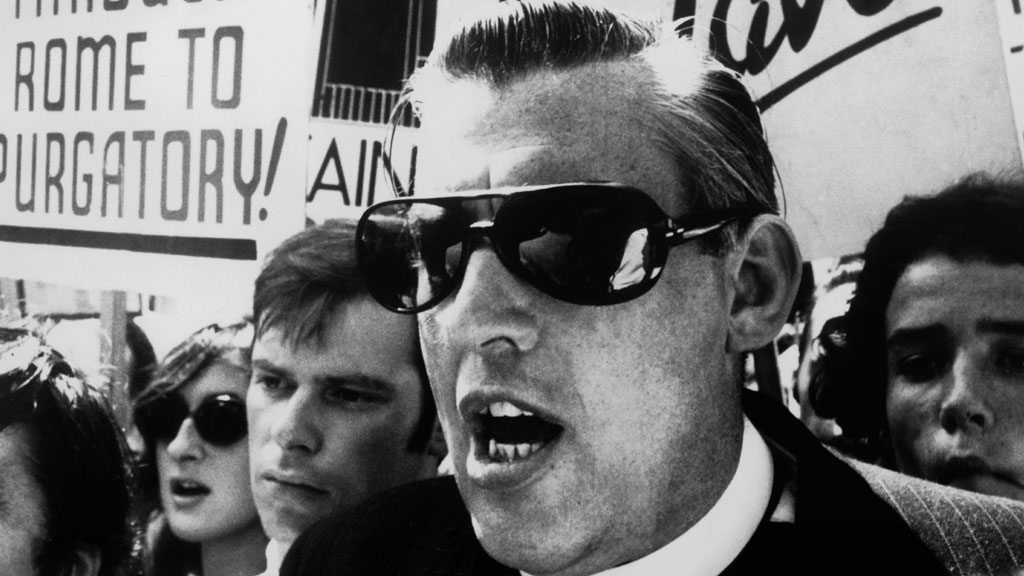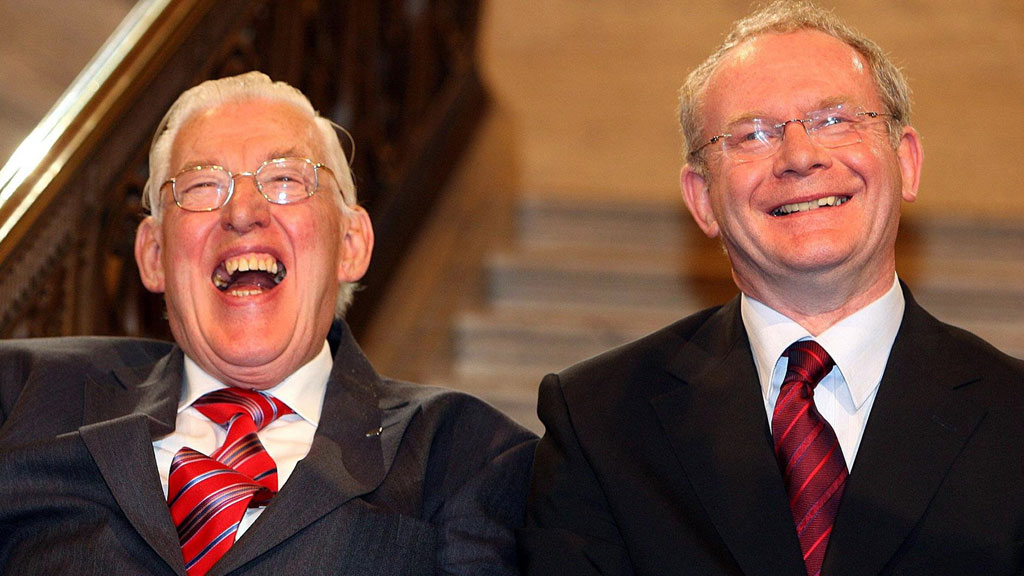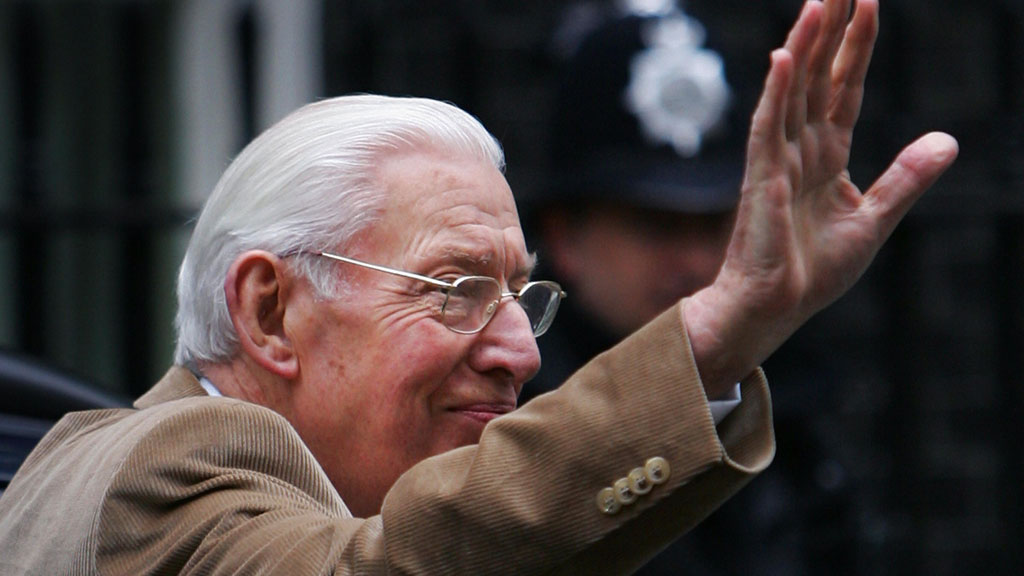Revd Ian Paisley: from defiance to compromise
A dominant presence in British politics for half a century, the Reverend Ian Paisley has died aged 88. He was a party leader, an MP and an MEP, and went on to become NI’s first minister in 2007.
“No surrender”. This was Revd Ian Paisley’s defiant refrain throughout the 1960s and 70s as he fiercely opposed any attempts to share power with Northern Ireland’s Catholics.
After decades of resistance, in 2007 Paisley finally agreed to join a power-sharing government with Sinn Fein, becoming first minister alongside the former IRA leader Martin McGuinness.
“I have sensed a great sigh of relief amongst all our people who want the hostility to be replaced with neighbourliness,” Paisley said in his first speech as first minister. “I believe that Northern Ireland has come to a time of peace, a time when hate will no longer rule.”
Lifelong politician
A political campaigner since 1950, Ian Paisley’s activism overlapped the terms of 12 US presidents, starting with Harry Truman and ending with Barack Obama.

His booming voice, coupled with a preacher’s uncompromising rhetoric, became his trademark. Elected as an MP in 1970 and then an MEP in 1979, Paisley used his positions as a pulpit from which to denounce anyone he saw as an enemy of the Protestant cause.
Paisley founded the Democratic Unionist Party in 1970, which he led for 37 years until standing down in 2008. In 1951 he established his own splinter church – the Free Presbytarian Church of Ulster – which has now spread to 11 countries, with Paisley serving as its moderator for 57 years.
We must not allow our loathing of the tragedies of the past to become a barrier to a better future. Ian Paisley agreeing to power-sharing in Northern Ireland in 2007
As a street politician and agitator throughout the 1960s and 70s, Paisley helped to frustrate every attempt to get Protestant community to share power with Catholics in Northern Ireland, at one stage serving a three-month month prison sentence for public order offences.

Fiercely anti-Catholic, Paisley once barracked Pope Jean Paul II in the European parliament, calling him the antichrist.
He led the “Ulster says No” opposition to Margaret Thatcher’s Anglo-Irish agreement of 1985, which allowed Dublin to be consulted on issues regarding Northern Ireland.
Some loyalist paramilitaries claimed that Paisley’s anti-Catholic rhetoric spurred them to violence. Paisley openly flirted with paramilitarism in the 1980s, forming the Ulster resistance, whose members threatened to take on Republicans.
Changing with the times
Paisley stuck to his principles but soon found that Northern Ireland was changing without him. After the IRA ceasefire, Paisley boycotted the Good Friday agreement talks in 1998, which were aimed at addressing relations between the Republic, Northern Ireland and other parts of the UK.

The resulting Good Friday agreement received overwhelming approval from voters – 71.2 per cent of people in Northern Ireland and 94.39 per cent in the Republic voted in favour of accepting it.
Even though Paisley lost the referendum on the agreement, his party prospered out of what unionists saw as sickening concessions to Sinn Fein.
Nine years later, having initially condemned it as treachery, Paisley embraced the Good Friday agreement and become first minister in a devolved government with Sinn Fein.
Never! Never! Never! Never! Paisley opposing the Anglo-Irish agreement in 1985
Paisley surprised many critics by striking up a friendship with Martin McGuinness. They became dubbed the “Chuckle Brothers” after being seen laughing together on numerous public occasions.
Moving on
Paisley said he had not shifted his beliefs, but that Northern Ireland had moved on. Tony Blair, prime minister at the time, thought that earlier heart trouble had made Paisley ponder his own mortality and embrace change.

Usually the junior voice in Ulster unionism, albeit the loudest, Paisley’s DUP became the largest party in Northern Ireland in 2005, outdoing its long-term rivals the Ulster Unionists, who had dominated local politics since before Ireland’s partition.
Ian Paisley, latterly Lord Bannside, saw his son, Ian junior, elected to the Northern Ireland Assembly in 1998 and then succeed him in his Westminster seat in 2010.
Paisley senior will be remembered for his fiery brand of politics, his decades of resistance and a final recognition of the best path for Ireland.
On the verge of power-sharing in 2007, he said: “People have come out of a dark tunnel and they can see there is a path out there for us. I think it has put a lot of faith and hope into people.”